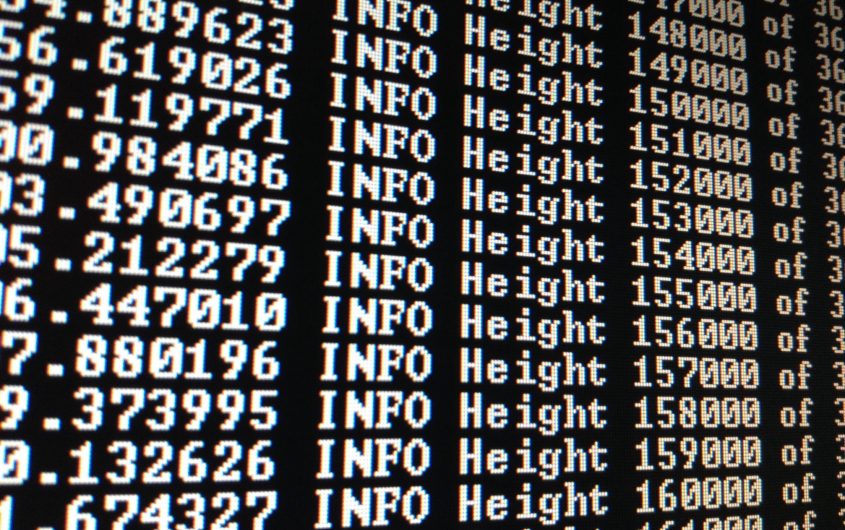
Blockchain: Chained Up by Legal Issues

Axel Spies
German attorney-at-law (Rechtsanwalt)
Dr. Axel Spies is a German attorney (Rechtsanwalt) in Washington, DC, and co-publisher of the German journals Multi-Media-Recht (MMR) and Zeitschrift für Datenschutz (ZD).
The German government acknowledges that interest in blockchain technology is growing rapidly and new applications are emerging almost daily. Blockchain as a technology even made it into the German CDU/SPD Coalition Treaty of 2018 (p. 44): “To unlock the potential of blockchain technology and prevent abuse, we want to develop a comprehensive blockchain strategy.” The government launched a consultation on this issue that closed a few weeks ago. Further, the Federal Ministry of Finance (BMF) and the Federal Ministry of Justice and Consumer Protection (BMJV) jointly issued a position paper in March 2019. In accordance with the Coalition Treaty, the position paper proposes to open up German law to electronic securities based on blockchain technology and implement regulations for the issuance of so-called crypto tokens. As other states already allow the use of blockchain technology for financial instruments, the BMF and BMJV thereby seek to enhance the attractiveness of the German financial market.
These activities require kudos. However, a comprehensive government strategy is lacking, and various legal issues require attention. One may doubt whether the various politicians and lawyers involved in drafting the relevant rules know the promises, advantages, and risks of this new technology.
Blockchain: What is it and how does it work?
In essence, blockchain is a transaction ledger database that is maintained by a consensus algorithm. The actual “chain” is stored on multiple computers. The chain is shared by all participants in an established, distributed network of computers in which a growing list of records, called blocks, are linked using cryptography. Each block contains a cryptographic hash of the previous block, a timestamp, and transaction data as to safeguard the ledger from any modification or removal of data.
Thanks to its open design, blockchain offers significant advantages. Businesses and government institutions are interested because it ensures a high degree of data integrity. Due to cryptographic hashing, it is nearly impossible to modify the data. Once verified by consensus, the data remains unchangeable, and any attempt to change it can be traced. The second advantage is the reliability of this technology. Since a blockchain is designed and administered on a decentralized basis, it is almost impossible that it could crash or malfunction. Decentralization also enables it to withstand outside attacks to a high degree. Lastly, blockchain stores data in near real-time, which allows for up-to-date and fast exchange of large amounts of information while maintaining full transparency of the chain.
Myriads of Applications Conceivable
The blockchain technology is already part of the financial world (Fintec) as the basis for so-called cryptocurrencies like Bitcoin or Ethereum. But its potential scope is much broader. Here are some examples:
- Control of supply chains as transport processes are automated using rule-based procedures,
- Track-and-Tracing of goods and their current condition in real-time,
- Document management by making established paperless processes and distribution logistics more efficient and secure,
- Administering the use of rental items and the sale of music and other media without intermediaries,
- Cross-border payments in near real-time,
- Large construction projects where the various contractors will receive payment if inspectors confirm via a blockchain that their part of the work or their order is complete and accepted.
Other areas of great interest are microloans in developing nations, which are already in the focus of the World Bank. The Bank states in its 2018 study “Blockchain & Distributed Ledger Technology” that [blockchain] “applications will likely be incremental, and will likely first replace processes and activities that are still manual and inefficient. Eventually, [blockchain] could increase efficiency and lower remittance costs, and potentially improve access to finance for unbanked populations, who are currently outside the traditional financial system.”
It is also important for lawyers as the technology allows future decentralized corporate registers or “smart contracts.” Smart contracts are computer protocols intended to digitally facilitate, verify, or enforce the negotiation or performance of a contract without requiring any third-party monitor. The use of blockchain for share transfers was recently discussed in the German trade press (Börsen-Zeitung, 08/17/2019) to accelerate this process and make share transfers cheaper.
Open Legal Issues Create Uncertainty
Blockchain is among the most important trend topics of the digital industry according to a survey of the German Association Bitkom. Roughly 55 percent of the German enterprises surveyed by Bitkom believe that blockchain will have a significant impact on the competitiveness of the German economy in the future. However, EU and German lawmakers seem hesitant to embrace the potential of blockchain technology. Businesses do not want to be hamstrung by overbearing and costly regulation. According to the platform chain.de, there are currently over 170 blockchain start-ups in Germany, mostly clustered in the Berlin area, with seven IPOs. These businesses and their investors urgently need a reliable framework to be on track for sustainable growth and to compete with others worldwide. The technical standards are set now.
The coalition government has agreed to develop a blockchain strategy by the end of this summer in order to enable the potential of the technology and prevent abuse. Compared to other countries of similar size and clout, Germany is technically on track to embrace blockchain, but a top-to-bottom regulatory approach will probably do more harm than good. To further develop the market and stimulate growth on a grand scale, the German federal government should rather focus more on investing in blockchain technology, while reining it in where this is warranted to protect its citizens. German blockchain expert Gilbert Fridgen, head of the Fraunhofer Blockchain Lab, agreed in a recent interview with the German Manager Magazin that a “reliable and fast data exchange between authorities or even secure machine-to-machine communication can be realized by blockchain.” He mentions as one area of emerging interest the use of blockchain technology for processing claims of migrants who regularly do not arrive in Germany with a paper trail.
Blockchain and the GDPR: Can they be reconciled?
Of particular concern is the unclear relationship between the blockchain technology and the General Data Protection Regulation (GDPR) in Europe, which entered into force in May 2018 (cf. separate analysis here). In a recent comprehensive study, Michèle Finck has analyzed the issues on behalf of the renowned European Parliamentary Research Service. Her study highlights “multiple points of tension” between blockchain technology and the GDPR. Prominently, she identified the two following issues.
First, the GDPR is based on the underlying assumption that in relation to each personal data point there is at least one natural or legal person – the data controller – whom data subjects can address to enforce their rights under EU data protection law. By contract and by design, blockchain is based on a decentralized approach by replacing one actor (data controller) with many different contributors to the chain via a distributed network. This makes the allocation of responsibility and accountability for data in the chain burdensome.
Second, the GDPR assumes that data can be modified or erased where necessary to comply with legal requirements of data access and the right-to-be-forgotten enshrined in Article 17. Blockchains, however, render such modifications of data purposefully onerous in order to ensure data integrity and to increase trust in the network. The longer the chain the more difficult this task becomes. In other words, the most attractive advantages of blockchain technology – its decentralized approach and data integrity while maintaining full transparency – clash with some important provisions of the GDPR.
Who will reconcile blockchain and the GDPR? Data protection agencies in Europe have not yet come to reliable conclusions, although blockchain is high on their agenda. The French data protection agency CNIL, in its recent study on blockchain technology (p. 9) appears to accept some compromises at least for the right-to-be-forgotten and data access under the GDPR: “The CNIL notes that it is technically impossible to grant the data subject’s request for deletion whenever the data are entered into the blockchain. However, when the data is entered on the blockchain as a pledge, a fingerprint from a key hash function or an encrypted fingerprint using a state-of-the-art algorithm and keys, the controller may render the data almost inaccessible, and thus approach the effects of an erasure of the data.” This approach raises some currently open questions, such as: What is “almost inaccessible”? What technological solutions are out there to ensure GDPR compliance? Will blockchain technologies, once they become widespread, undermine the GDPR rights? Or will it render data processing safer due to the decentralized data processing? We also need a solid level of digital knowledge to enhance blockchain. To quote Fridgen again: “Blockchain must not necessarily be part of the [school] curriculum, but the tools to use it, namely digitalization and computer science [should be].” For sure, there is work to be done on many levels.









